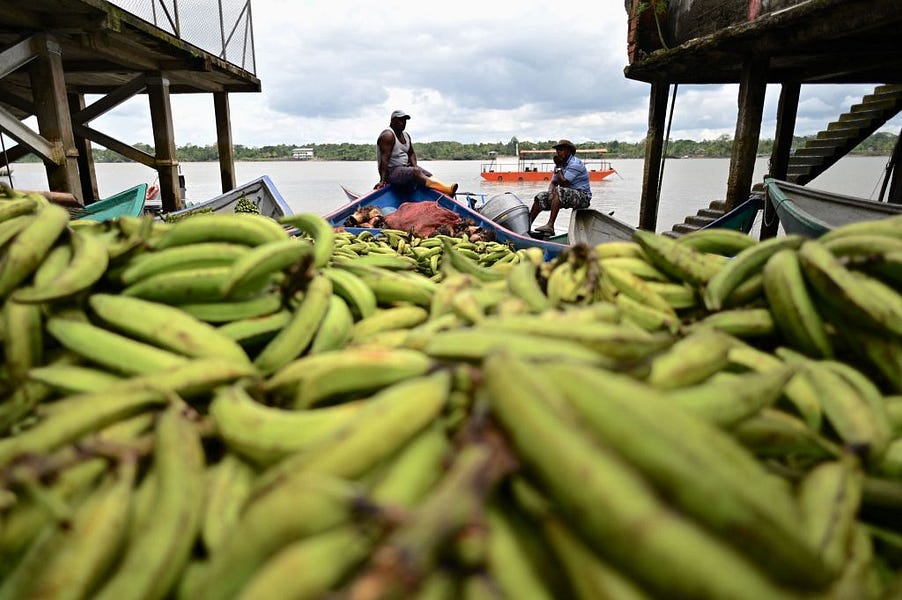There are many ways we could describe our era. It is the information age, early-onset Idiocracy, the rise of the authoritarians, etc., etc., etc.
We won’t know the truth until the age is over. But to me, we live in the age of anxiety. Americans get about 20 million prescriptions for anti-anxiety drugs annually, and while Americans said this year that our worries on a host of subjects has retreated from all-time highs in 2020, we are way, way more worried compared to the recent past. Many of these worries are intensely personal, but others are dislocated societal or political concerns being experienced as personal anxiety. And that’s no good.
There’s so much anger in our culture today, and you can’t hate something you aren’t afraid of. We are an angry people because we are an anxious people. Politicians, popular culture, the news media, and leaders of major institutions speak in a language of anxiety, and did so long before our now-receding pandemic began. It wouldn’t be so odd if it weren’t for the fact that things are so much better here and now than they’ve been for most of human existence: freer, richer, safer, cleaner, and easier. Yet somehow endlessly problematic and anxiety-inducing.
There are a lot of reasons for this mismatch. But part is surely a result of media overconsumption—panicky pulp produced to shovel at you in order to hold an audience in a fragmented marketplace. All day, every day, you are offered an unlimited array of serious worries about which you can do next to nothing.
How worried should you be about, say, banana fungus? The story has been everywhere over the past few years, but in case you missed it, the species of bananas that make up almost all human consumption, the Cavendish, is under serious threat. It is the same fungus that took down the previous, ahem, top banana. This time around it could be more serious because of the overreliance on one species. The end of the banana as we know it is a real possibility.
If you live in Ecuador, the world’s leading exporter of bananas, you might not be able to help worrying about the Fusarium fungus. Certainly, if you’re one of the officials there scanning for funky bananas, you should probably be righteously worried about something that could affect 20 percent of your country’s workforce.
What if you live in America? If you work at Chiquita, Dole, or Del Monte, serious concern is merited. The same goes if you work at the Department of Agriculture. You’re paid to fret about foreign fungus. But how much should the other 330 million of us worry about banana rot?
Should we worry more than we did about the collapse in honeybee hives a decade ago? That panic proved misplaced, but helped launch untold backyard beekeepers. Now, there’s a danger that the influx of imported European honeybees for home hives is crowding out better, indigenous pollinators like the all-American bumblebee. So maybe we should worry about that, instead. But how much compared to banana blight?
Maybe you’re a runner who needs bananas to fight leg cramps. Maybe you have a little one new to solid foods who basically subsists on a diet of bananas and little star-shaped rice puffs. Maybe you have reservations at Brennan’s. Let’s just say you like bananas enough to worry about disruptions. Fine. But at what cost to the other worries you’re already nurturing?
Will bananxiety take away from your concern about space junk? The seagrass collapse that’s killing manatees in Florida? Cryptocurrency wealth inequality? The cooling of the sun? The return of capes to men’s fashion? These are all bad things, some maybe even worse than living in a world of banana blight. But if you think of the banana problem as part of something larger—climate change, the exploitation of workers in poor countries, global trade, etc.—you can probably make room for some concern.
But what about your real fears? Big things mostly out of your control: the corrosion of our system of government, the environment, the economy, etc. The big things in your own life: Your relationships, your career, your diet, that weird bump or lump you noticed, your kids, your parents. … Banana fungus can’t compete with those things because they really are your responsibility.
You don’t want to be oblivious, though, so maybe just put it in the pile of stimulus-response anxieties. Every time you see the banana bin at the front of the produce section or watch a Minions movie with your kids, you can check the boxes: You know what the problem is and you care about it. And there, banana fungus can, ahem again, rot along with man capes, space trash, the solar minimum, seagrass, ineffective pollinators, and the Bitcoin divide. Like a stack of unanswered mail, the possibility of a banana panic can wait for its turn to rob you of a little peace of mind.
Piling up the unpaid bills of worry creates problems for us personally, yes. But it also is behind our nation’s serious collective-action problem. Obsessive concern about problems mostly beyond our control can prevent us from taking action on the ordinary, important work institutions are supposed to do. If the spending bill is really the last hope of a dying planet, then we can’t have the right conversation about how much to spend and for how long. Overhyped anxiety also distracts us. If you’re running a “forensic audit” looking for ballot boogeymen, you can’t do your job as a state official. Exaggerated, dislocated anxieties, even when sincere, are keeping us from our real work.
Then there’s burnout. In an era where everything is a crisis, then nothing really is one. How many overhyped panics do we expect Americans to endure before reaching the rational conclusion that the news media, their politically addicted peers, and institutional leaders have lost all perspective? The boy who cried wolf is clogging your Facebook feed with global warming or vaccine memes and hollering about murder hornets on TV. The next step is to pop a Xanax and tune out.
We hear constantly about the need to “raise awareness,” but in the age of anxiety, all this awareness is proving paralytic. We’d all do better to try to live our lives and let the bananas fall where they may.







Please note that we at The Dispatch hold ourselves, our work, and our commenters to a higher standard than other places on the internet. We welcome comments that foster genuine debate or discussion—including comments critical of us or our work—but responses that include ad hominem attacks on fellow Dispatch members or are intended to stoke fear and anger may be moderated.
With your membership, you only have the ability to comment on The Morning Dispatch articles. Consider upgrading to join the conversation everywhere.